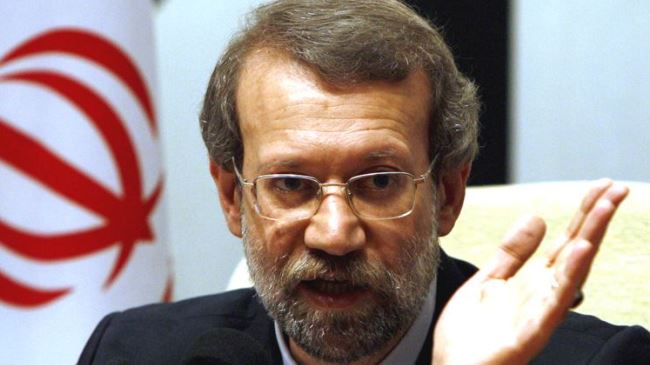 Iran’s Speaker of Parliament Ali Larijani has boosted the Rouhani Government’s attempt for a comprehensive nuclear deal with the 5+1 Powers (US, Britain, Germany, France, Russia, and China).
Iran’s Speaker of Parliament Ali Larijani has boosted the Rouhani Government’s attempt for a comprehensive nuclear deal with the 5+1 Powers (US, Britain, Germany, France, Russia, and China).
Speaking to CNN on Tuesday, Larijani said “it is quite possible” that a final agreement can be reached by November 24, when interim arrangements expire: “I think the remaining issues, or the outstanding issues, can be resolved by that deadline.”
He added the caveat, “Of course, this [is] providing that both sides are serious enough about reaching a deal.”
The Larijani interview, with comments on the nuclear issue from the 3:45 mark:
Larijani has been an influential marker in the past, possibly speaking on behalf of the Supreme Leader, of Iran’s position towards talks. In October 2009, his criticism of promising discussions between Iran and the 5+1 in Geneva effectively blocked any move towards a resolution.
Iranian officials are meeting counterparts from the US and the European Union in Vienna today, seeking to close gaps on key issues before the next high-level summit. Iranian Foreign Minister Mohammad Javad Zarif, US Secretary of State John Kerry, and the European Union’s Catherine Ashton will lead the delegations.
EU spokesman Michael Mann said Zarif and Ashton had a “useful” 2 1/2-hour meeting on Tuesday night:
Kerry echoed Larijani’s statement yesterday, “I don’t believe [a deal] is out of reach…but we have some tough issues to resolve.”
Zarif was more downbeat than Larijani and Kerry, saying on arrival in Vienna that a final deal was “very unlikely…because the issues that are still remaining and have to be resolved are very broad”.
The major outstanding issue is the number and level of Iran’s centrifuges for uranium enrichment for a civil nuclear program.
Larijani on Political Prisoners Ghavamai and Rezaian: “We Don’t Want to Send People to Jail With No Good Reason”
In his Tuesday interview, CNN’s Christiane Amanpour challenged Speaker of Parliament Ali Larijani about political prisoners, including Anglo-Iranian Ghoncheh Ghavami — imprisoned in June for trying to watch a men’s volleyball match — and Iranian-American journalist Jason Rezaian, detained in July.
Larijani said of Ghoncheh, who is reportedly in the second week of a hunger strike in Evin Prison and still has not had her charges revealed:
There should be no doubt that we don’t want to send anybody to jail with no good reason. As far as I know, there has been an investigation opened into the case. And I hope that this will come to an end and be concluded as soon as possible.
As for Rezaian, Larijani said:
As far as I know, there are some charges against this person, but they have not yet been made public because of those laws I told you about. But his case is being processed as we speak.
He deflected further discussion: “These are questions you should put to the judiciary. I don’t know much about these cases.”
Larijani: We Know the Right Way to Fight in Iraq Against Islamic State
In his Tuesday interview with CNN, Speaker of Parliament Ali Larijani repeated his denunciation of the US-led airstrikes in Iraq.
Larijani implied, without named the US, that it was responsible for the rise of the jihadists: “The Islamic State is not a state that was created on its own….The big powers were responsible for its creation, and also some countries of the region.”
He then declared:
Terrorists cannot be destroyed by bombing them. You cannot solve terrorism by occupation. And in order to fight them effectively, you have to choose another method. And you know that we have good experience in that, because we have actually fought against them.
Larijani made the case for Iranian leadership of any intervention:
Us, I mean Iran, went to the side of the Iraqis very early when the crisis broke out. We don’t really want to broadcast it; we don’t want to go to the media and talk about what we did for the Iraqis. But in practice, we defended them.
By EA WorldView
The Iran Project is not responsible for the content of quoted articles.

 QR code
QR code